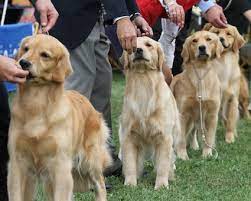Golden Retrievers are known for their friendly demeanor, intelligence, and loyalty. As beloved family pets, they bring joy and companionship to households around the world. However, like any breed, they exhibit specific behaviors that stem from their genetics and environment. In this article, we will delve into the fascinating world of Golden Retriever dog behavior, shedding light on their tendencies, training needs, and social interactions.
Introduction
Golden Retrievers are renowned for their gentle and friendly nature, making them one of the most popular dog breeds globally. In this article, we will explore various aspects of their behavior, from their innate instincts to training techniques that promote positive behaviors.
The Nature vs. Nurture Aspect of Behavior
Understanding a Golden Retriever’s behavior involves considering both genetic predispositions and environmental factors. Genetics play a role in temperament and tendencies, but proper training and socialization can greatly influence behavior.
Key Instincts and Drives in Golden Retrievers
Golden Retrievers possess several key instincts and drives that stem from their history as hunting and retrieving dogs. Their hunting instincts drive behaviors such as chasing moving objects, while their retrieving drive makes them excel in games of fetch.
Developmental Stages and Behavioral Changes
A Golden Retriever’s behavior evolves throughout its life stages. Puppyhood is marked by curiosity and exploration, while adolescence might introduce some challenges due to hormonal changes. Adulthood brings about stability in behavior.
Training Approaches for Positive Behavior
Training Golden Retrievers involves positive reinforcement and consistency. Basic commands like sit, stay, and recall are essential, and socialization with other dogs and people helps prevent behavioral issues.
Common Behavioral Challenges and Solutions
Separation anxiety can lead to destructive behavior when left alone. Addressing this requires gradual desensitization. Excessive barking can be curbed through identifying triggers and redirecting attention. Providing appropriate chew toys can deter unwanted chewing and digging.
The Role of Exercise in Behavior Management
Adequate exercise is vital for a well-behaved Golden Retriever. Regular walks, playtime, and mental stimulation help channel their energy in a positive way.
Creating a Stimulating and Enriching Environment
Enriching a Golden Retriever’s environment with puzzle toys, interactive games, and varied experiences can prevent boredom-related behaviors.
The Human-Canine Bond: How It Influences Behavior
Golden Retrievers thrive on human interaction and often mirror their owners’ emotions. A strong bond encourages desirable behaviors.
Grooming and Its Impact on Behavior
Regular grooming not only keeps a Golden Retriever’s coat healthy but also fosters a positive relationship with touch, reducing sensitivity to handling.
Nutrition and Behavior: Making the Connection
A balanced diet rich in nutrients supports overall health, which in turn can influence a Golden Retriever’s behavior and energy levels.
Addressing Aggression and Fear-Related Behaviors
Addressing aggression and fear-related behaviors requires patience and professional guidance. Positive reinforcement and counter-conditioning can be effective strategies.
Understanding Tail Wagging and Other Canine Communication
A wagging tail doesn’t always indicate happiness. By paying attention to body language and vocalizations, you can better understand a Golden Retriever’s feelings and intentions.
Golden Retrievers as Therapy and Service Dogs
Golden Retrievers’ empathetic and obedient nature makes them excellent candidates for therapy and service roles, where their behavior can positively impact lives.
Conclusion
In conclusion, understanding Golden Retriever dog behavior is essential for providing them with a fulfilling and enriching life. By acknowledging their instincts, training needs, and social tendencies, you can foster a strong bond and help them thrive as loving companions.
FAQs
- Q: How often should I train my Golden Retriever? A: Training sessions should be regular but brief, around 10-15 minutes a few times a day, to maintain engagement.
- Q: Can Golden Retrievers adapt to apartment living? A: Yes, with sufficient exercise and mental stimulation, Golden Retrievers can adapt well to apartment living.
- Q: Are Golden Retrievers prone to separation anxiety? A: Yes, their social nature can lead to separation anxiety. Gradual training can help alleviate this issue.
- Q: What’s the best way to socialize my Golden Retriever with other dogs? A: Controlled introductions to well-mannered dogs in safe environments, starting at a young age, can foster positive social interactions.
- Q: How can I manage my Golden Retriever’s shedding? A: Regular brushing and grooming can help manage shedding. Consulting a veterinarian for dietary recommendations can also make a difference.


